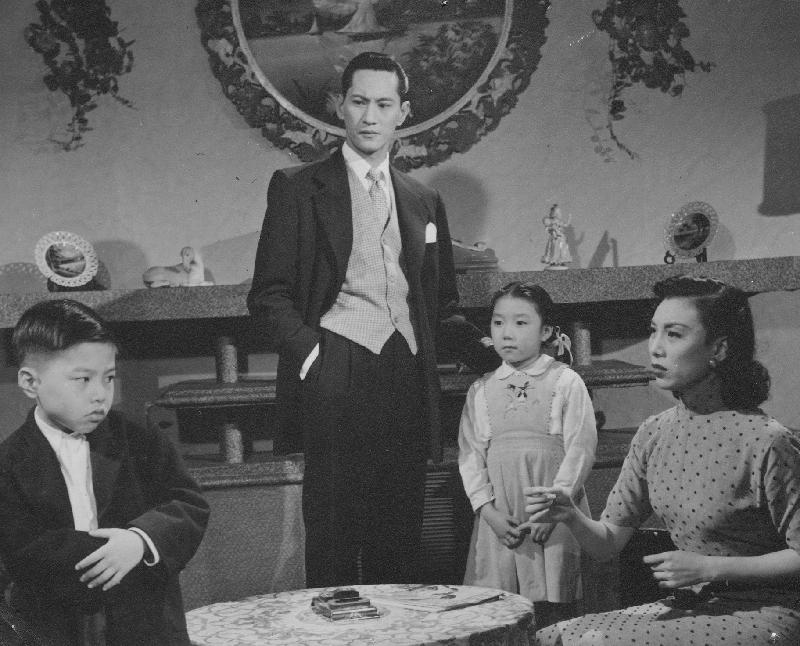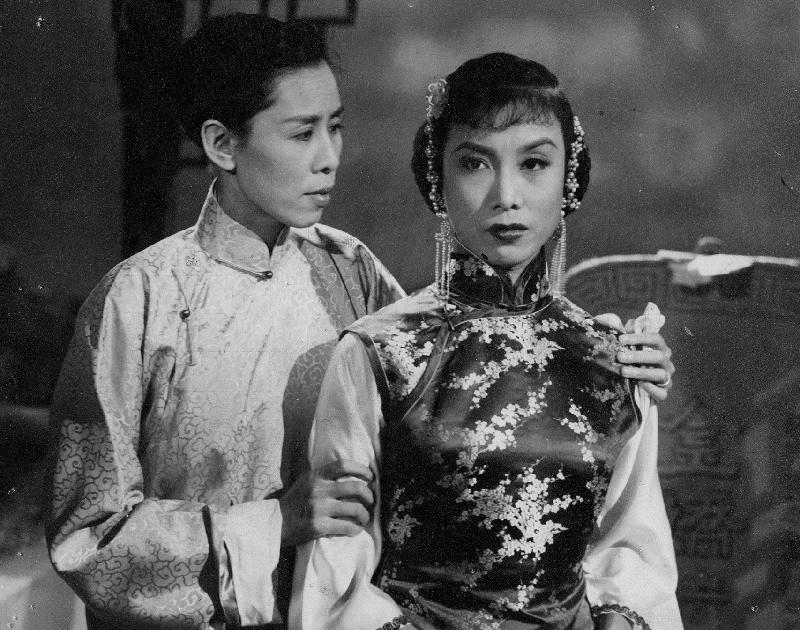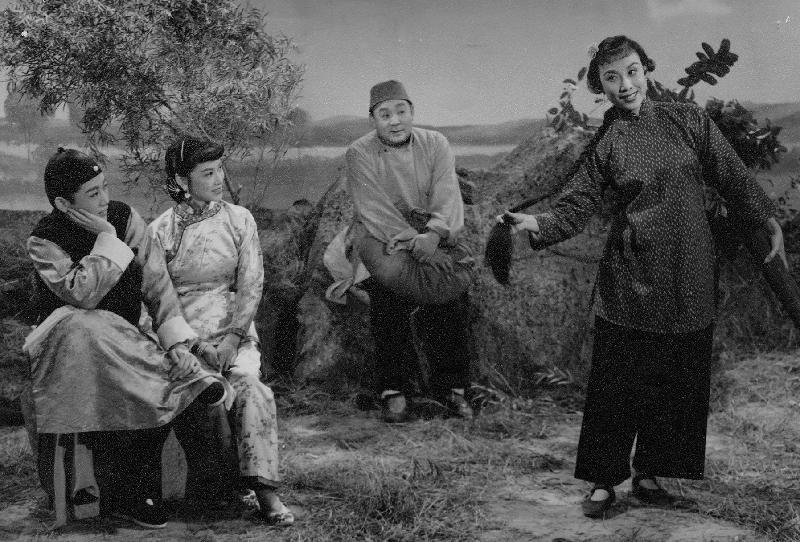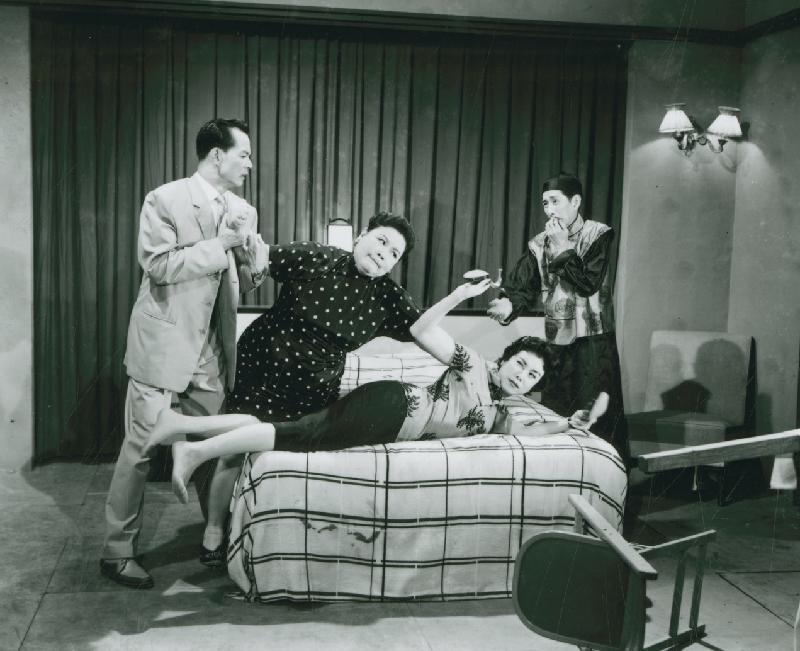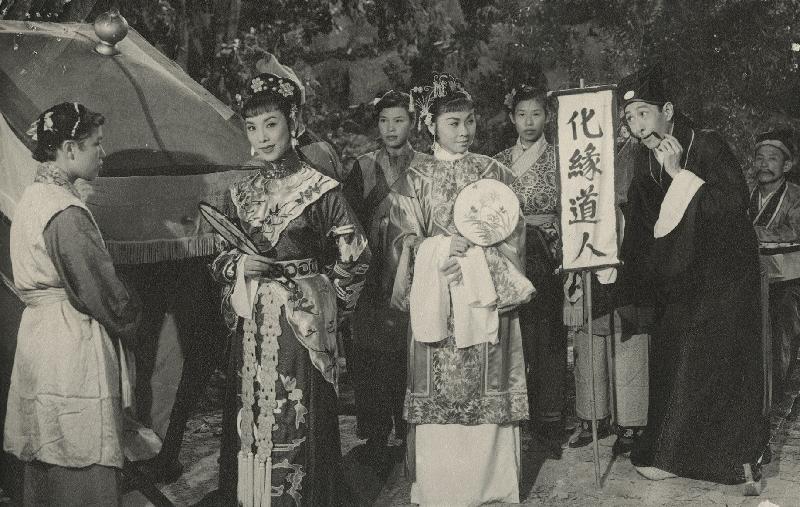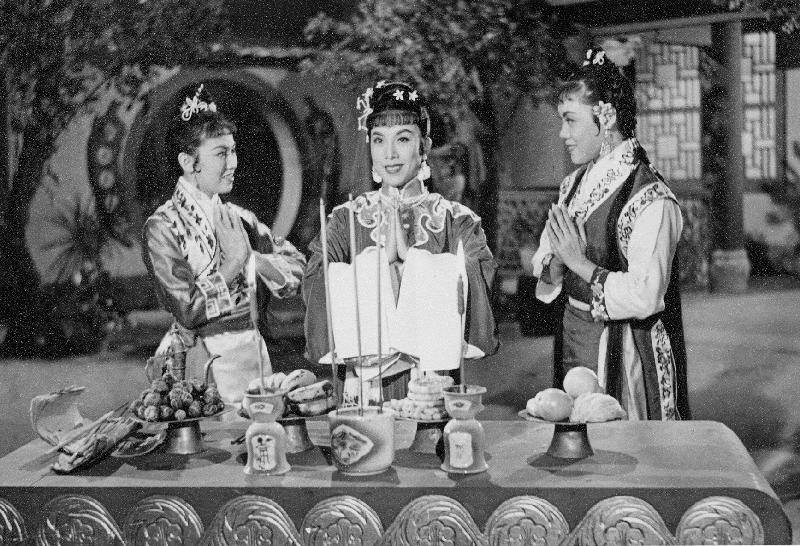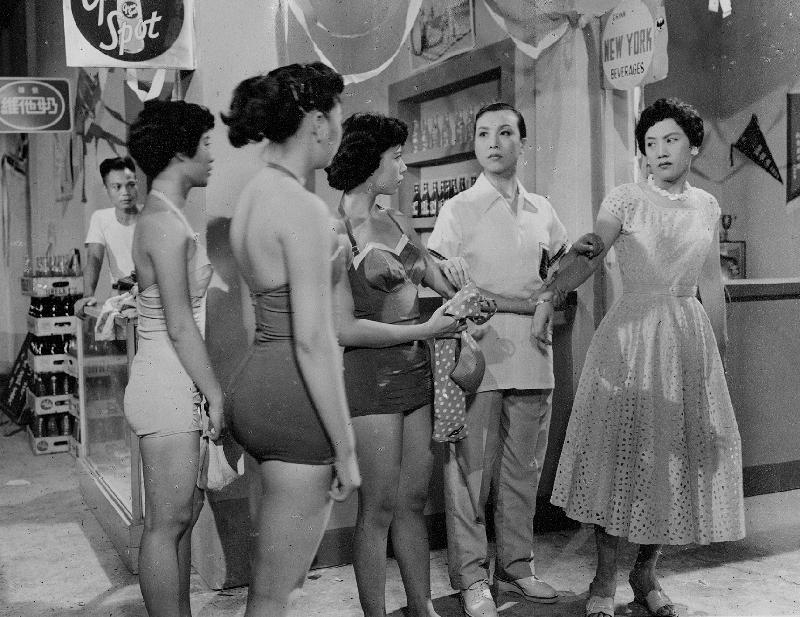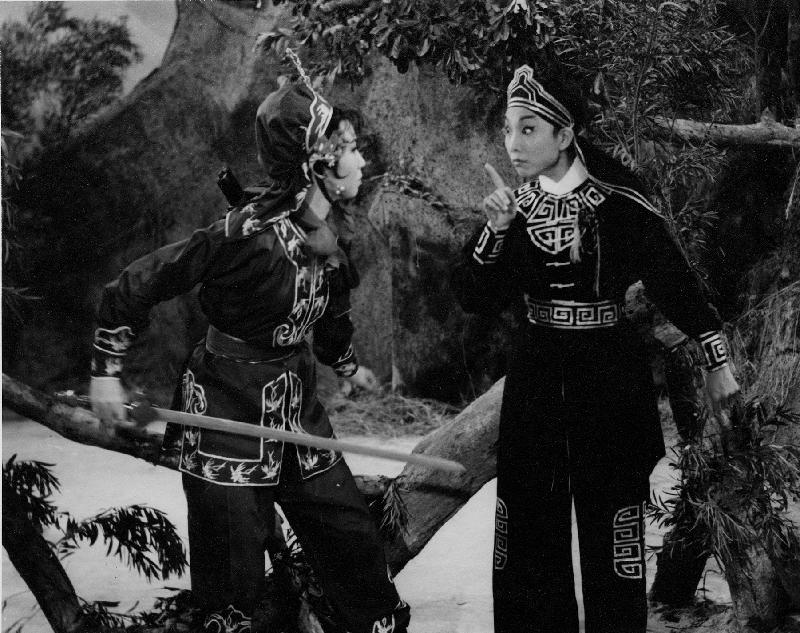Film Archive's "Morning Matinee" series to revisit allure of "Versatile Opera Queen" Tang Bik-wan (with photos)
******************************************************************************************
Some of the films will be accompanied by post-screening talks hosted by Tang's daughter Helen Lui Oi-yin, Tang's disciple Chan Ka Ming, acclaimed Cantonese opera star Yuen Siu-fai, film researcher Yuen Tsz-ying and Ng Ngok-ching.
Tang (1926-1991) found success through her versatility in performing various characters, even sheng roles, which gave her the moniker the "Versatile Opera Queen". At a young age, Tang received vocal training from Cantonese opera composer Liu Liu-liu in Guangzhou, and after she moved to Hong Kong she became an apprentice under renowned male huadan Tang Chiu Lan Fong. Tang gradually worked her way up the opera ranks from minor roles to that of leading huadan. In 1947, she formed the Bik Wan Tin Cantonese Opera Troupe. Being an avid promoter of Cantonese operatic culture, Tang groomed numerous protégés.
In the 1950s, Tang ventured into the film industry and was credited with over 280 movies of numerous genres made between 1950 and 1990, including many adaptations from her Cantonese opera masterpieces. She achieved fame with her portrayals of numerous distinctively different personas, excelling with her remarkable acting talents. Tang was also founder of three film companies which produced 46 films. Tang returned to film and television in the 1980s, and starred in the notable role of "Ma Da" in TV drama series "The Seasons", which earned her the legendary "Ma Da" title.
Riding on Tang's popularity in the role of "Ma Da", the filmmaker shot the derivative "Mother Vs. Mother" (1988) to follow "Ma Da's" success. In the film, Bill Tung and Tang are lovers in childhood until Tung is forced to marry the wealthy Lydia Sum by his father. Many years go by and the two families meet again when Sum's son (Jacky Cheung) falls in love with Tang's daughter (Maggie Cheung), and the two mothers engage in a hilarious fight over their children's marriage.
Tang brought tragic roles to life, particularly with her singing voice which touched the hearts of many audiences. "Two Sisters in Phoenix Bower" (1954) marks the rare occasion of Tang sharing the silver screen with her real-life daughter. Also appearing together for the first time are Tang and Yuen Siu-fai, the enduring screen pairing. Tang stars as a village maiden whose husband through an arranged marriage decides to marry a rich woman. To raise her son by herself, she resorts to being a dance escort, which makes her son feel shameful. Tang also performs two songs in the film with her deep sultry voice that touches audiences' hearts. "Paying Nocturnal Sacrifice to Kam-kiu" (1954) tells of a tragic love story between a rich young man (Yam Kim-fai) and a courtesan (Tang). This film is the earliest musical still in existence featuring Yam and Tang, good friends in real life, as the male and female leads. "Silk Factory Girl" commences with Tang lamenting over her bleak life through singing: her mother died early and her stepmother is wicked. This tragic heroine comes to life through Tang's masterful performance both as a singer and an actor. "The Three Sisters, Part One and Part Two" is Tang's first on-screen collaboration with her "Eight Peonies" stage sisters Yu Lai-zhen and Patricia Lam Fung, in which Tang evokes empathy from the audience in her role as a resilient mother who endures all hardships for the sake of her child.
Tang's groundbreaking performances in comedy had proven the value of her artistic skills. The "Iron-beaked Hen" was one of her iconic comedic characters. "Iron-beaked Hen's Sudden Rise to Power" depicts "Iron-beaked Hen" and her assistant Leung Sing-por travelling to the city to resolve conflicts for an elderly person. However, the duo encounter a thief along the way and have to stay in a haunted house. The on-screen chemistry of the sharp-witted Tang and the hilarious Leung makes this film a buoyant and joyful spectacle. Tang in "The Strange Lady Sit Yat-neung" uses various guises in her character, such as dressing as an ugly Zhongshan dialect-speaking woman, and disguising herself as a man for investigation. She also proved herself a well-rounded diva with her marvellous singing, switching between different dialects and operatic styles. In "Mr Wong's Adventures with the Unruly Girl" (1959), Sun Ma Si-tsang brings to life a wife-fearing husband who also chases skirts, while Tang plays a sassy girl with a sharp tongue. The film ends with a comedic fight between Tang and Sun Ma's feisty wife (Tam Lan-hing), and the way that the two women together pull Sun Ma's leg is an unmissable classic slapstick. "A Reserve Bride" (1966) follows Tang who finds that she only has two more months to live. She then schemes with her mother to search for a back-up bride for her husband to look after the family, providing a feast of laughter.
As the most sought-after huadan of her times, Tang's portrayals of beautiful periodic sweethearts situated in different scenes were simply unforgettable. "The Colourful Phoenix Lamp" depicts the engaged couple Sun Ma Si-tsang and Tang having a colourful phoenix lamp as the keepsake for their relationship. Yet, the provincial commander's son attempts to force Tang to marry him, and falsely accuses her father of treason. Tang in "The Seven Humiliations of Su Qin" (1957) plays Su Qin's wife who encourages her husband secretly with tricks. Later Su manages to persuade the six states to form an alliance against Qin and is made Prime Minister. "Su Siu-mui Thrice Tricks the Groom" (1958) stars Tang as a beautiful and well-read heiress who falls in love with a scholar played by Sun Ma Si-tsang. But Tang repeatedly teases and plays pranks on Sun Ma; even on their wedding day, Tang makes Sun Ma solve three difficult puzzles before they can be married. "Poetic Genius" (1960) tells of a classic love story between a talented poet and a beauty, featuring Tang and her most frequent co-star, Law Kim-long, which provides a perfect reminiscence of this on-screen couple well loved by their fans.
Tang nailed cross-dressing roles in both the Cantonese opera stage and in films, and her gender-bending performances were nothing less than what a male actor could deliver. "Tonight and Every Night" (1956) follows Tang and Leung Mo-sheung, who are each forced to cross-dress as the opposite sex since they are born due to the superstition of their fathers. The story unfolds as the two later fall in love with each other. Both acclaimed for these absurd roles, Tang and Leung's divine and intriguing performances playing both sexes is undoubtedly the highlight of the film. Tang plays the Chinese deity of civil star in "The Powerful Sword and the Magic Pen" who is demoted to the mortal world, living as a human who marries a fairy who sneaks from the heaven. Apart from Tang's performance, the spectacular sets and stunts of this coloured version are also worth watching. The cast of "A Funny Match" (1963) gives a dazzling performance in which Tang plays the roles of both the twin brother and sister with distinctive characteristics. Her collaboration with Cheng Bik-ying in the film is more than delightful. Moreover, Poon Yat On cross-dresses as the Emperor's mother and plays another character of a beggar, showcasing his acting talents. "Tur Tur's Adventure, Part One" is the only martial arts film in which Tang plays a male character. This story is full of quirky twists and the intertwined relationships between characters. The martial arts scenes, machinery, sets and special effects also provide many surprises for audiences.
All the films are in Cantonese. "Mother Vs. Mother" is with Chinese and English subtitles, while some of the films have Chinese lyrics displayed onscreen.
Tickets priced at $30 are now available at URBTIX (www.urbtix.hk). For credit card telephone bookings, please call 2111 5999. For programme details, please call 2739 2139 or visit www.filmarchive.gov.hk/en_US/web/hkfa/pe-event-2021-tbw.html.
In view of the latest situation of COVID-19, audiences should take note of the latest service arrangements for screening venues, admission and seating to be implemented. For details, please call 2739 2139 or visit www.filmarchive.gov.hk/en_US/web/hkfa/home.html.
Ends/Thursday, October 7, 2021
Issued at HKT 15:49
Issued at HKT 15:49
NNNN





